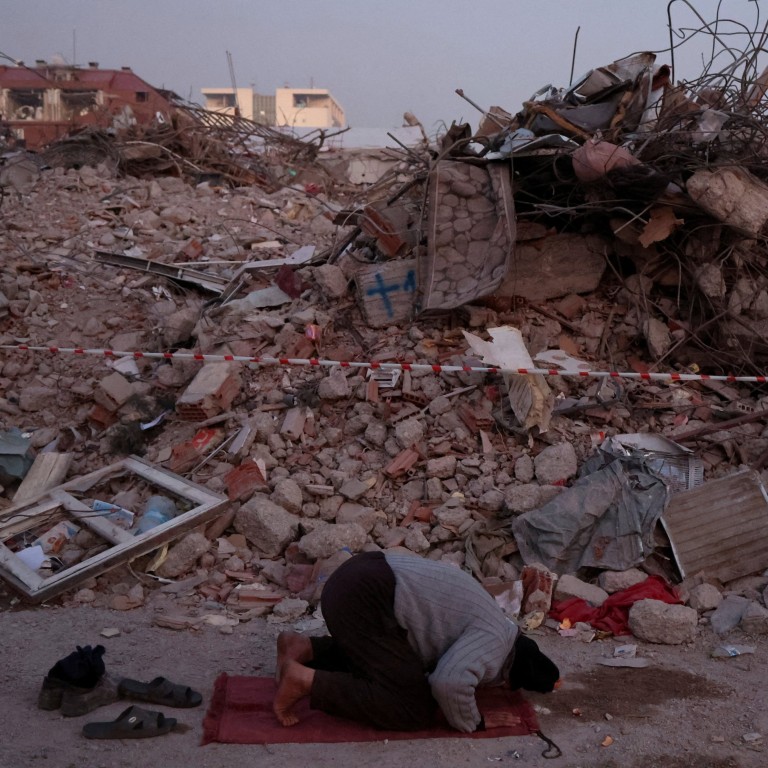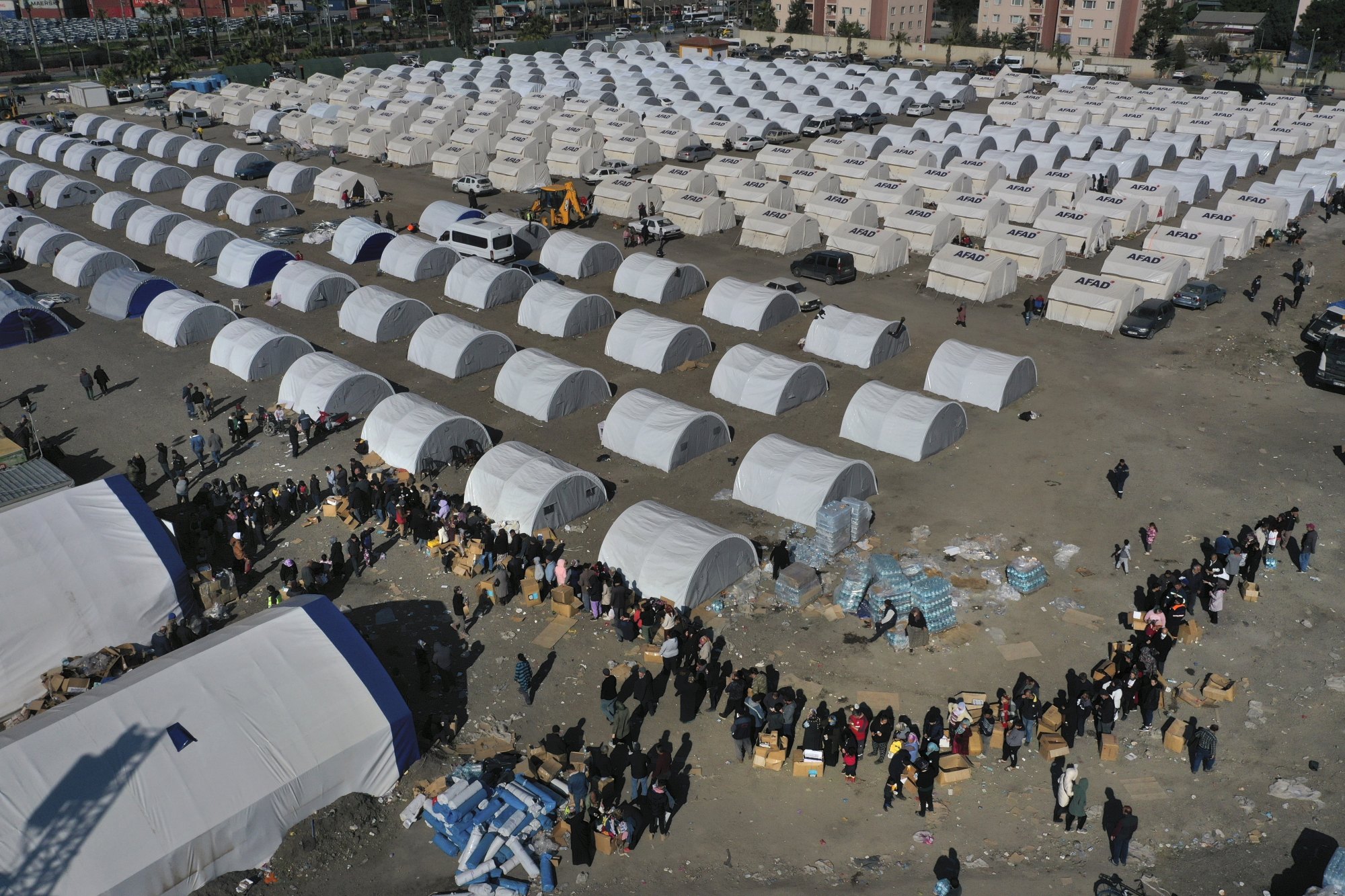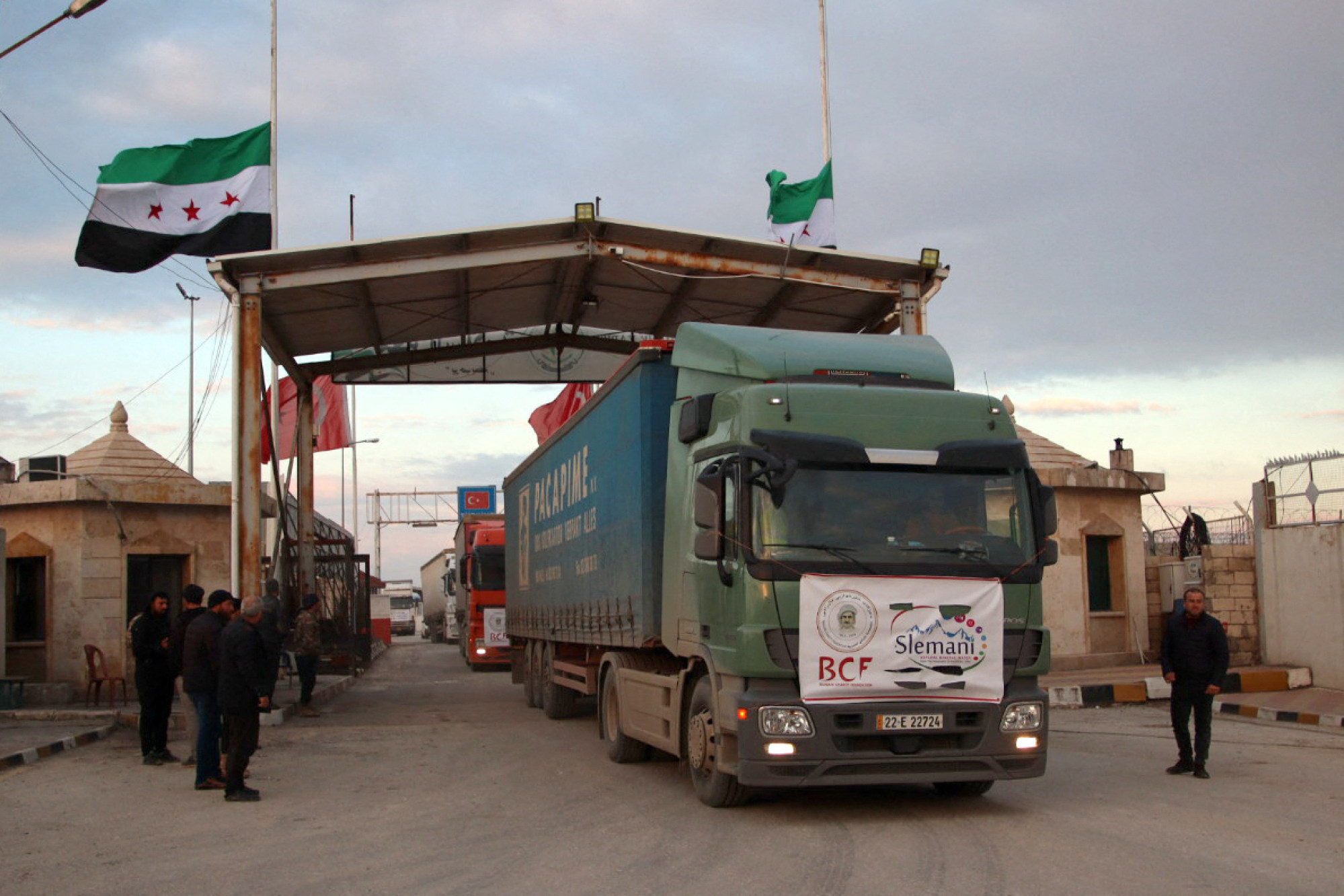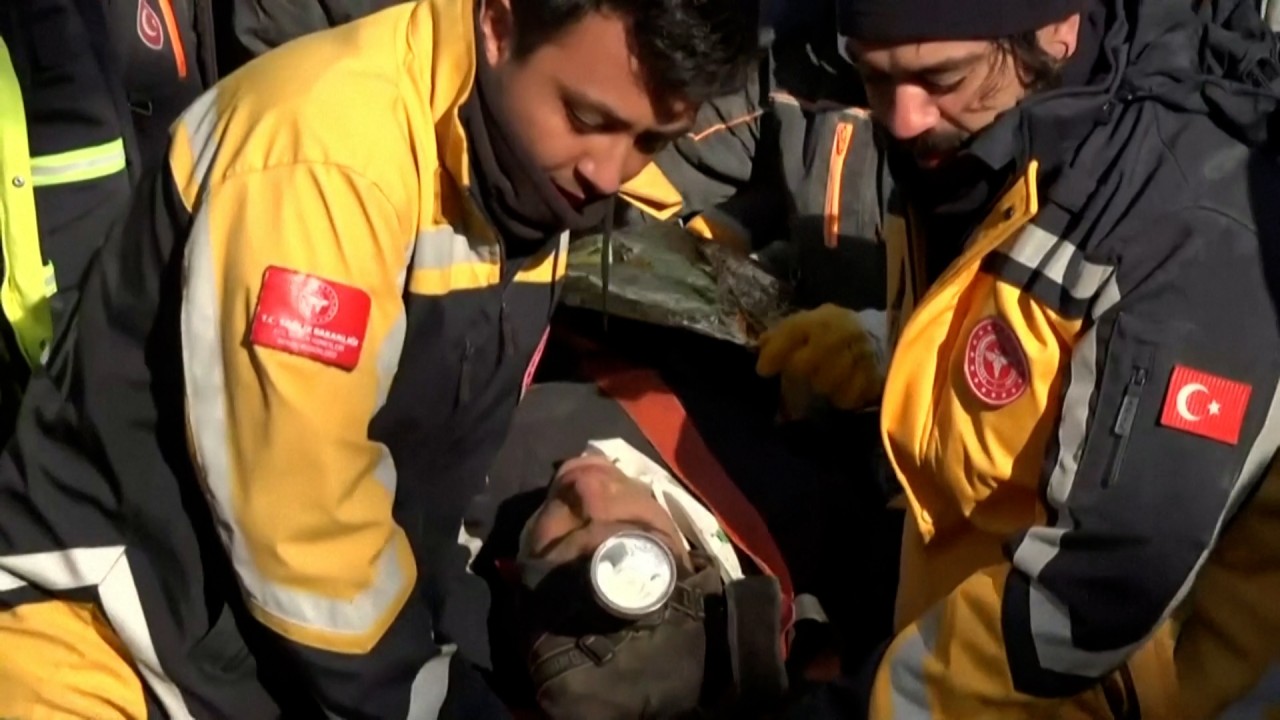
Turkey-Syria earthquake: Erdogan vows to rebuild as death toll passes 41,000
- Death toll from February 6 Turkey-Syria earthquake continues to rise as the WHO says 26 million need aid
- A 77-year-old woman was pulled alive from the rubble in the Turkish city of Adiyaman, trapped for some 212 hours
Turkish President Recep Tayyip Erdogan vowed to press on with rescue and recovery efforts more than a week after a powerful quake ripped through his country and neighbouring Syria, with an elderly woman the latest to be pulled from the rubble.
The combined death toll in Turkey and Syria has climbed over 41,000, and many survivors are enduring near-freezing winter temperatures, having been left homeless by the devastation in cities in both countries.
“We will continue our work until we remove the last citizen left under the collapsed buildings,” Erdogan said late on Tuesday after a cabinet meeting held at the headquarters of the Disaster and Emergency Management Authority (AFAD).
Damage assessment of buildings, of which tens of thousands were destroyed, will be completed in a week and reconstruction will begin within months, he said.
“We will rebuild all the houses and workplaces, destroyed or made uninhabitable by the earthquake, and hand them over to the rightful owners,” he added. More than 105,000 people were injured in the quake, he said, with more than 13,000 still being treated in hospital.
Overnight, a 77-year-old woman named Fatma Gungor was pulled alive from the rubble of a seven-storey residential block in the city of Adiyaman, some 212 hours after the first earthquake, media reports said.
Focus turns to survivors as Turkey-Syria quake toll passes 37,000
Wearing an oxygen mask, covered in a gold foil blanket and strapped onto a stretcher, Gungor was carried by rescuers down from the ruins of the building to a waiting ambulance, footage from state broadcaster TRT showed.
Afterwards, Gungor’s relatives hugged the rescue team, made up of military personnel and members of the disaster management authority AFAD.
Nine other survivors were rescued in Turkey on Tuesday as the focus of the aid effort shifted to helping people now struggling without shelter or enough food in the cold.
Erdogan has acknowledged problems in the initial response to the 7.8-magnitude quake that struck early on February 6 but he has said the situation is now under control.
“We are facing one of the greatest natural disasters not only in our country but also in the history of humanity,” Erdogan said.
More than 2.2 million people have left the worst-hit areas already, Erdogan said, and hundreds of thousands of buildings have become uninhabitable.
UN authorities have said the rescue phase is coming to a close, with the focus turning to shelter, food and schooling.
The UN has launched an appeal for US$397 million to cover three months of “life-saving relief” for victims in Syria and said it was close to a similar plan for Turkey.
“Millions of people across the region are struggling for survival, homeless and in freezing temperatures,” UN Secretary General Antonio Guterres said.
The Turkish toll was 35,418 killed, Erdogan said. More than 5,814 have died in Syria, according to a Reuters tally of reports from Syrian state media and a UN agency.
Hong Kong rescue team gets to work at earthquake site in Turkey amid cold weather
“The needs are huge, increasing by the hour,” said Hans Henri P. Kluge, the World Health Organization’s director for Europe. “Some 26 million people across both countries need humanitarian assistance.”
“There are also growing concerns over emerging health issues linked to the cold weather, hygiene and sanitation, and the spread of infectious diseases – with vulnerable people especially at risk.”
An aid convoy on Tuesday passed through a newly reopened border crossing into rebel-held north Syria, where help has been slow to arrive.
A caravan of 11 United Nations trucks entered Syria through the reopened Bab al-Salama border point, after Damascus agreed to let the world body use the crossing for aid.

Before the earthquake struck, almost all the crucial humanitarian aid for the more than four million people living in rebel-controlled areas of northwest Syria was being delivered through just one crossing.
The trucks were loaded with essential humanitarian assistance, including shelter materials, mattresses, blankets and carpets, Paul Dillon, a spokesman for the UN’s International Organization for Migration (IOM), said.
Activists and local emergency teams have decried the UN’s slow response to the quake in rebel-held areas, contrasting it with the planeloads of humanitarian aid delivered to government-controlled airports.
Syrian baby born under rubble is one of untold numbers of quake orphans
The United States, which refuses ties with Syrian President Bashar al-Assad, called on both the government and rebels to work to allow in aid.
“Everyone should put aside their agendas and affiliations in service of one pursuit and one pursuit only, and that’s addressing the humanitarian emergency – the humanitarian nightmare – that’s unfolding in parts of northwest Syria,” State Department spokesman Ned Price told reporters in Washington.
Meanwhile, the search for survivors was about to end in the north west of Syria, said the head of the White Helmets main rescue group, Raed al Saleh.

Russia also said it was wrapping up its search and rescue work in Turkey and Syria and preparing to withdraw.
Survivors joined a mass exodus from disaster zone, leaving their homes and unsure if they can ever come back.
Hamza Bekry, a 22-year-old Syrian has lived in Antakya, in southern Turkey, for 12 years, having fled the conflict in his homeland, but he was now preparing to follow his family to Isparta in southern Turkey.
“It’s very hard … We will start from zero, without belongings, without a job,” Bekry said.
Additional reporting by Agence France-Presse
How to help
Turkish Consulate General Hong Kong
Unicef Hong Kong
Oxfam
Save the Children
World Vision Hong Kong
Red Cross
Medecins Sans Frontieres (MSF)


